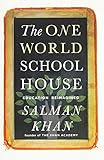Found in 2 comments on Hacker News
adamzerner · 2013-08-04
· Original
thread
Someone should read how to disagree (http://www.paulgraham.com/disagree.html). He is criticizing something that Sal probably got wrong. Sal could probably do a better job of using findings in educational research to make his videos and exercises better. But the author seems to be implying that KhanAcademy as a whole is of poor quality. I think he's using a DH5 to argue something that requires a DH6.
I think Sal does an excellent job with his videos as a whole. He does a good job of explaining things in an intuitive and deep way. See http://www.collegeanswerz.com/rethinking-education for more information. Or read Sal's book http://www.amazon.com/The-One-World-Schoolhouse-Reimagined/d....


For example, imagine an end-of-section quiz with 5 multiple choice questions with 4 answers each. The static way is each student sees the same 5 questions with the same 4 answers to choose from.
Instead, you could have a bank of 100 questions, in buckets of 20 covering the same material. So, each student sees one question from each bucket, drawn randomly. And then each question could have 10 answers, with 4 randomly displayed for any given instance of the question, sometimes with multiple right answers, sometimes none, etc.
This would require more work, but effort spent on assessment should scale with the number of students, just not linearly. (Right?)
The goal is not to make cheating impossible. The goal is to make cheating hard enough that it's easier to just learn the material and answer the question.
Furthermore, once you have that bank of 100 questions, you can start running analytics on it to see which variations are harder or easier for students to understand, which topics might need a better explanation in the teaching section, etc. You could eventually be able to generate adaptive exams from this data.
Sal Khan of the Khan Academy talks about all these things. I recommend his book: The One World Schoolhouse. (http://www.amazon.com/The-One-World-Schoolhouse-Reimagined/d...)